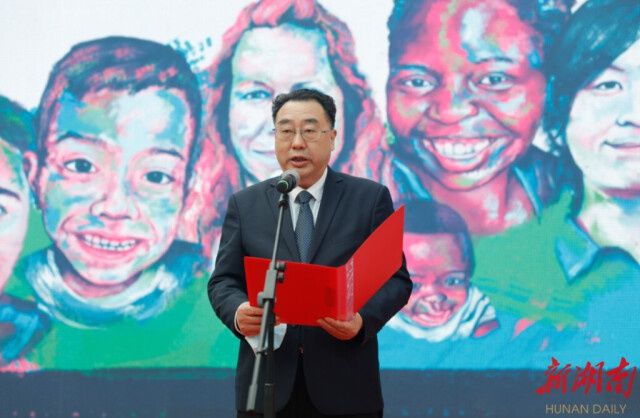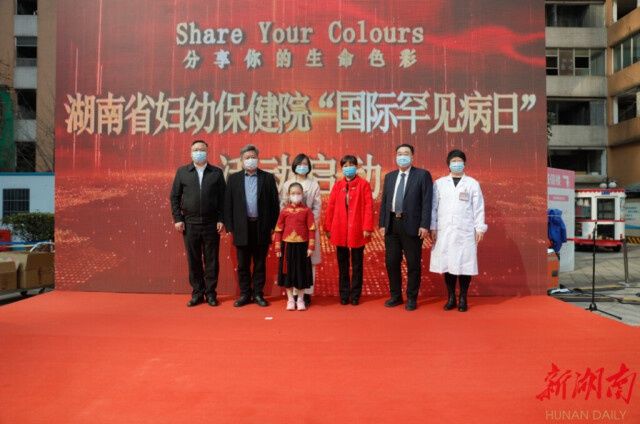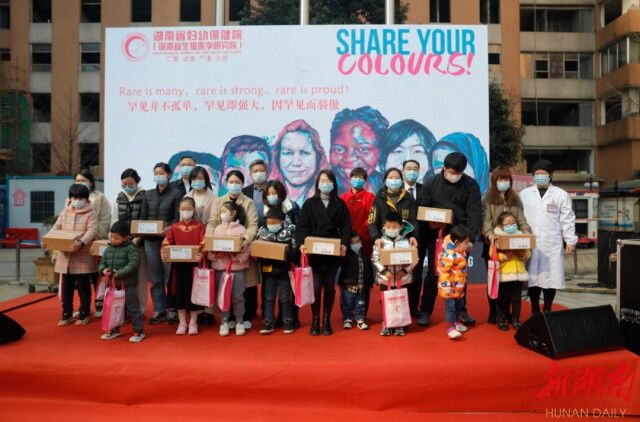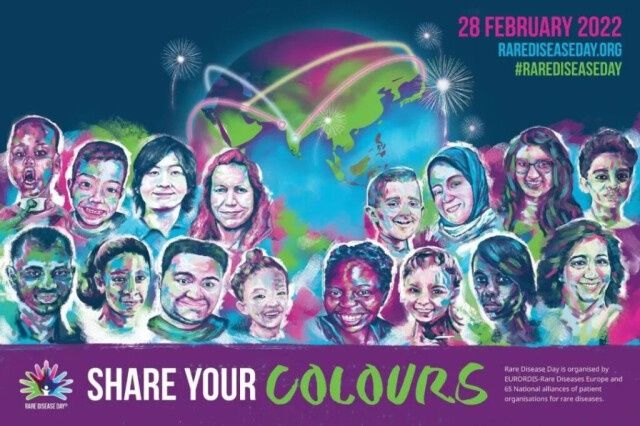Public Health News New Hunan Client News (Correspondent Huang Rui Han Xu) February 28 this year is the 15th “International Rare Disease Day”, and this year’s theme is “Share the Color of Your Life”. On February 27, Hunan Maternal and Child Health Hospital held the launching ceremony of the 15th “International Rare Disease Day” theme series. Tang Yuping, director of the Publicity Office of the Hunan Provincial Health and Health Commission, Li Shizhong, a second-level investigator from the Medical Administration and Medical Management Office, and Liu Jingshi, vice presidents, Wang Hua, and Liang Songyue, vice presidents of Hunan Maternal and Child Health Hospital, attended the launching ceremony. 10 families of children with rare diseases from Changsha City, representatives of family members of rare diseases and medical staff from the provincial maternity and child-related departments participated in the event.
Director Liu Jingshi of Hunan Maternal and Child Health Hospital said that the purpose of this event is to popularize the knowledge of rare diseases and pay attention to children with rare diseases. As the Hunan Provincial Prenatal Diagnosis Center and Newborn Disease Screening Center, the Provincial Maternal and Child Health Hospital has been committed to the early detection and intervention of rare diseases, and has formed a “screening-diagnosis-treatment-rebirth guidance-prenatal diagnosis” A comprehensive service chain model for rare diseases. In the past 20 years, it has provided prenatal diagnosis services for nearly 1,000 rare disease families, effectively preventing these families from having children again, and provided diagnosis, treatment and long-term follow-up for more than 4,000 children with inherited metabolic diseases.

Li Shizhong, a second-level researcher of the Medical Affairs and Medical Management Office of the Hunan Provincial Health and Health Commission, said in his speech that the Provincial Health and Health Commission We attach great importance to the prevention and treatment of rare diseases. Yesterday, we held a rare disease work conference in the province. It aims to promote the medical management of rare diseases, improve the diagnosis and treatment capabilities of rare diseases, strengthen the care and assistance for patients with rare diseases, and reduce the medical burden.
Ms. Liu, the representative of rare disease family members, told everyone her story. Ms. Liu’s son weighed 6.6kg when he was born, and all examinations were normal. But it didn’t take long for the child to have repeated diarrhea, and he was hospitalized for more than a month without improvement. In April 2020, he was diagnosed with congenital immunodeficiency disease. Unfamiliarity with the disease, worries about children, and helplessness about the future have caused the whole family to panic. Later, I learned that it can be cured by hematopoietic stem cell transplantation, and my hope was instantly ignited. The family moved to Shanghai. After three months of preparation, Ms. Liu’s son successfully completed the hematopoietic stem cell transplantation. I heard that this disease can now be screened for immune deficiency by collecting heel blood after the baby is born, and early treatment. As a family member of a rare disease, I hope everyone can pay attention to and understand the rare disease of congenital immunodeficiency. More advanced medical technologies can help our children overcome the disease and usher in a new life.
Hunan Maternal and Child Health Hospital established a rare disease multidisciplinary team in 2019, including the National Health Commission Key Laboratory of Birth Defect Research and Prevention, Medical Genetics, Neonatology, Child Rehabilitation, and Child Health , Children’s Eye Health, Children’s Otolaryngology and other disciplines, scientific research and clinical experts, open a rare disease multidisciplinary clinic in Room 302 on the 3rd floor of the Chengxin Building all day from Monday to Friday, in the chromosomal disease, genomic disease, autism and other neurodevelopmental disorders. Genetic research and intervention have reached the domestic first-class level.
The leaders at the meeting pressed the start button together to announce the official launch of the 15th “International Rare Disease Day” publicity campaign.

Launching Ceremony
A promotional video about rare diseases — “Health and Life” was also played at the launching ceremony. And the difference never give up.” At the event site, donations were made to the ten PKU children’s families present, and materials worth nearly 2,000 yuan were distributed to each of them.

On-site donation
It is reported that the Hunan Maternal and Child Health Hospital will also make a donation on February 28th. Free free clinics and consultations are carried out online and offline, and international rare disease activities are carried out in cooperation with 14 city and prefecture maternal and child health care hospitals. The purpose of carrying out this series of activities is to hope that the whole society will care and care for this group.

Rare disease knowledge link:
The so-called rare disease is also called “orphan disease” , mostly congenital or genetic diseases. “Gross Freezing Man” (Amyotrophic Lateral Sclerosis), “Porcelain Doll” (Osteogenesis Imperfecta), “Moon Child” (Albinism), “Children Who Don’t Eat Humans” (Phenylketonuria), etc. belong to this category kind. As far as a single disease is concerned, the incidence of rare diseases is very low, but more than 7,000 rare diseases have been discovered in the world, accounting for 10% of the known human diseases. It can be seen that rare diseases are not uncommon!
Since most rare diseases are hereditary diseases and are related to gene mutation, there is no specific medicine, but it is not impossible to prevent and control. Early diagnosis, early intervention, and the treatment of rare diseases are still very valuable. For example, children with phenylketonuria should be screened for neonatal diseases in a timely manner after birth, and given special dietary treatment immediately after the screening, the children can still live as normal people.
[Editor in charge: Tu Shihui]
[Source: Public Health News]